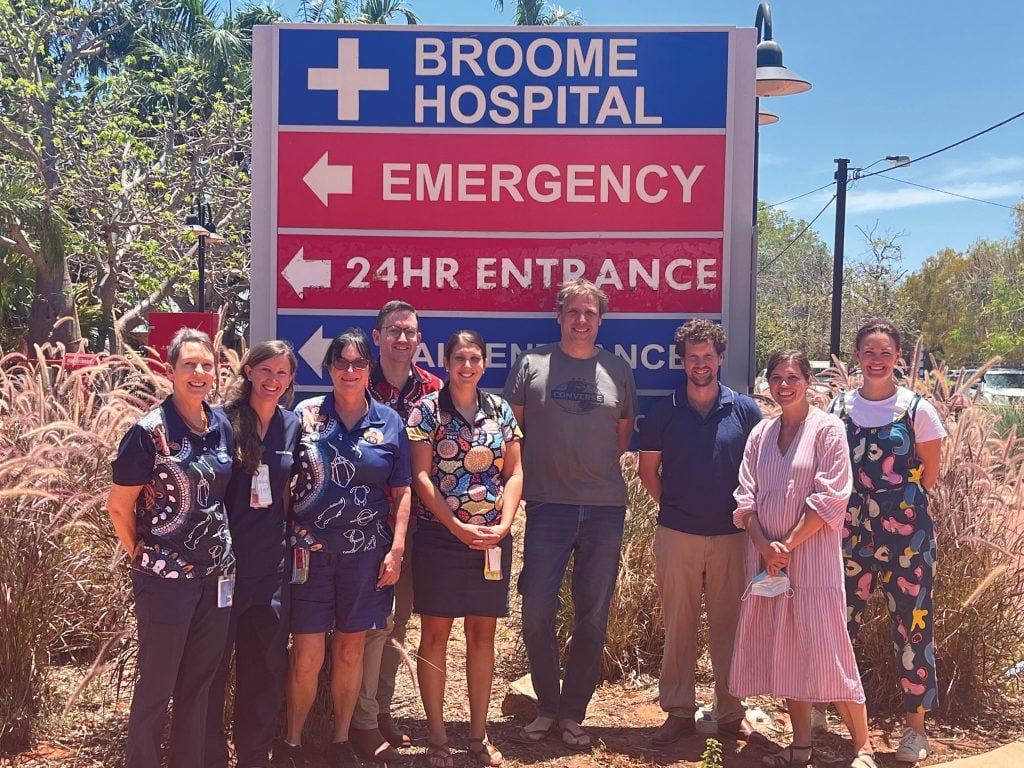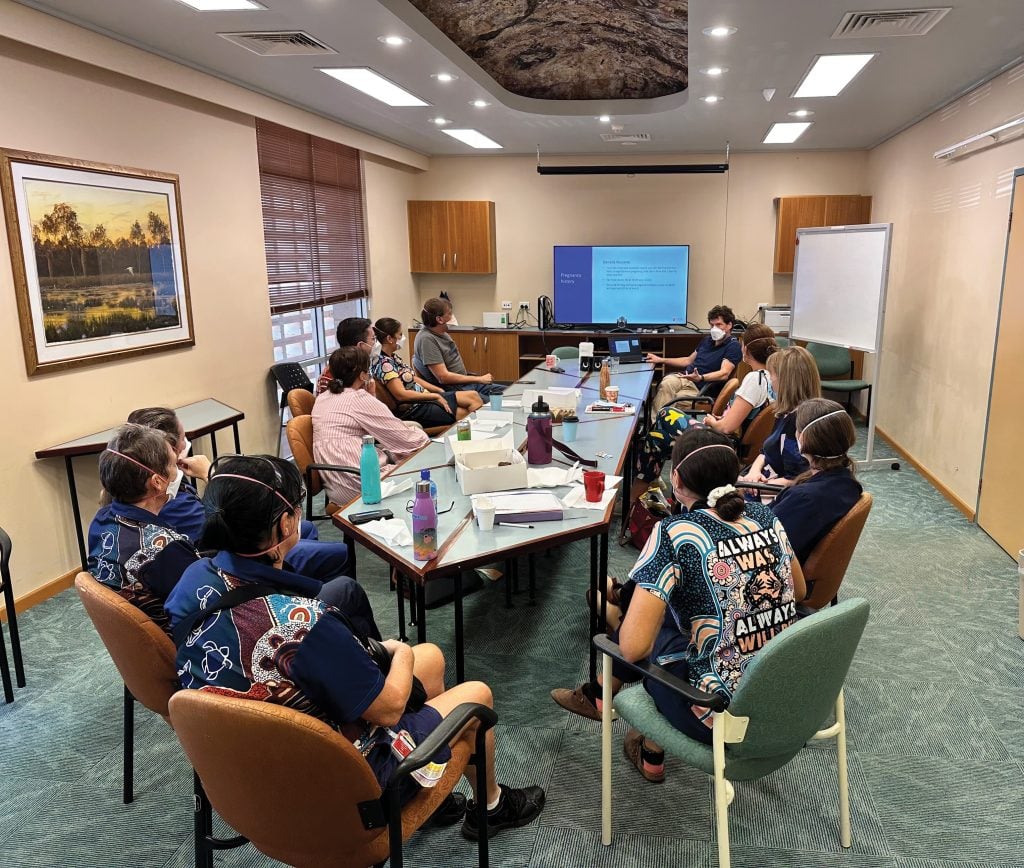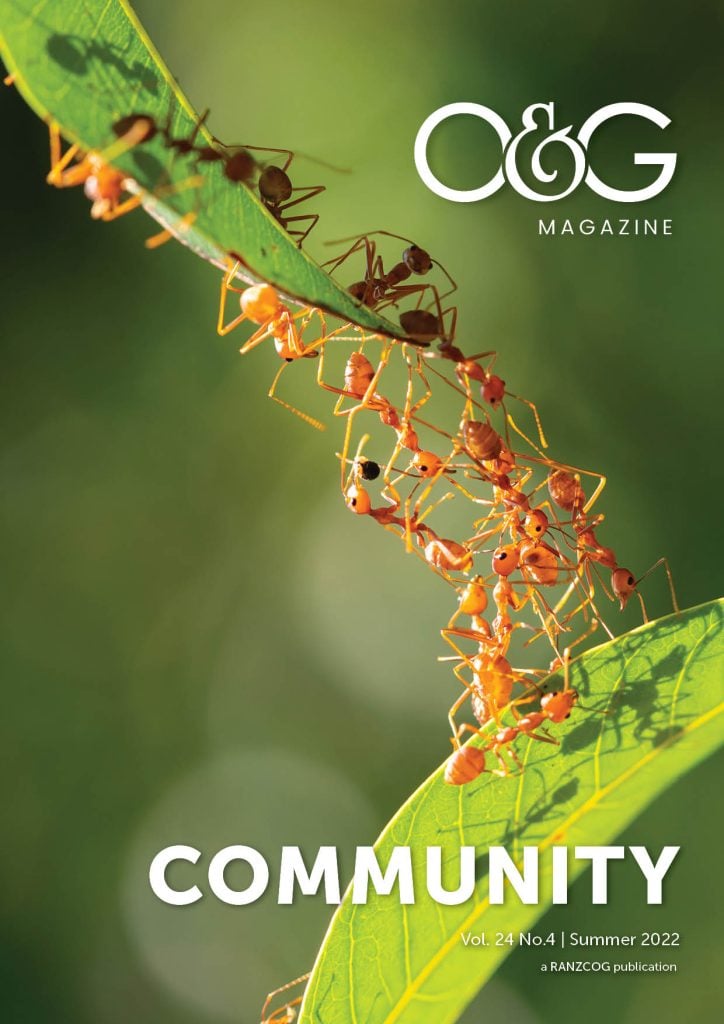The Obstetrics and Gynaecology Education and Training (OGET) project is currently a 12-month Australian Government funded pilot to develop and deliver upskilling and educational training for a range of medical professions who play a role in the provision of maternity and maternity related services. The pilot is being delivered via four hubs providing on site and outreach training to rural and remote areas of Australia.
The hubs are located at:
- Royal Darwin Hospital, covering the Northern Territory and northern Western Australia.
- Orange Health Services, covering their peripheral area of Mudgee, Cowra, Parkes and Forbes
- Warrnambool Hospital, covering Hamilton, Colac, Portland and Camperdown.
- Sunshine Coast University Hospital, covering Gympie and Kingaroy
The project has seen the commencement of hubs visiting their peripheral sites to provide training on topics such as:
- Placenta Abruption
- Primary PPH
- Secondary PPH and sepsis
- Trauma in Pregnancy
- Flat baby at birth
- LUSCS at fully dilated
Participation at each site has varied depending on how regional and remote the location is, with one session seeing up to 21 participants attending.
So far there have been sessions held in various locations including Broome, Western Australia; Gove, Northern Territory; Cowra and Mudgee in New South Wales; and Hamilton and Camperdown in regional Victoria, just to name a few.

Participants who attended the October Broome Hospital OGET session
The project aims to gather evidence on the effectiveness of targeted training in rural and remote areas and to develop upskilling within local hospitals. Reporting and evaluation help to identify further opportunities to improve the quality of education and training provided.
Positive feedback has been received to date from participants, with comments about how they will apply their learnings moving forward:
- ‘great refresher; interesting comparison to policy and guideline’
- ‘good refresher of management of PPH’,
- [that the participant would now] ‘escalate abnormal CTG earlier’
- [that valuable learning had included] ‘methods of disempacting head’ and ‘shoulder delivery at caesar’
Participants have also shared what changes or improvements they intend to implement as a result of attending a session:
- ‘better awareness of the presenting pattern of PPH and to keep a broad differential in mind’
- ‘remembering to refresh on local policy with new drug changes, and immediate vs maintenance management of PPH’.
Another participant said it was ‘great to have multidisciplinary views discussed and [I felt] safe to ask questions or offer opinions’. The training sessions have created productive and solid multidisciplinary discussions.

Training session run by Dr Andrew Brewin visiting Broome Hospital, discussing the topic of ‘Trauma in Pregnancy’
The project has a scheduled OGET Network meeting in late November 2022 which will provide an opportunity to share knowledge, discuss how the project has rolled out, and discuss areas to improve for future opportunities in rural and remote settings.
Adequate health services underpin the success of every community and are the base upon which other services develop and thrive. In turn, this translates into economic, social and cultural benefits.
Access to maternity care attracts young families and the associated staff and support people. Supporting specialists, GP obstetricians, midwives, nurses and allied health staff through education and upskilling programs ensures that the quality of medical care remains at the highest standard.
Without a consistent approach towards providing quality maternity care in these communities, we will only see fragmented and sporadic efforts towards the upskilling and training of medical professionals. It will result in inconsistencies in the access, quality and standard of maternity care provided. We are already seeing promising outcomes from the OGET project, and we look forward to reporting on continuing positive results in 2023.
Lisa Egan
OGET Project Coordinator
Mel Pietsch
Head of Engagement and Rural Health






Leave a Reply